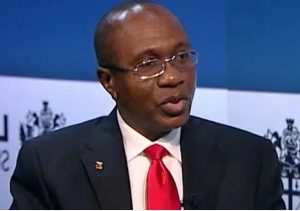 According to an investigation conducted, approximately N531.4 billion of the Central Bank of Nigeria’s intervention funds remains unused by nine Deposit Money Banks in the country.
According to an investigation conducted, approximately N531.4 billion of the Central Bank of Nigeria’s intervention funds remains unused by nine Deposit Money Banks in the country.
This development follows the decision by Olayemi Cardoso, the current governor of the apex bank, to suspend all CBN intervention funds. Last October, upon assuming office, Governor Cardoso halted all development finance interventions, citing a need to refocus the CBN on its core mandate and separate monetary policy from fiscal intervention.
Under the previous administration of Governor Godwin Emefiele, the CBN implemented various intervention programs, including the Anchor Borrowers Programme, the 100-for-100 Policy on Production and Productivity, the Nigerian Electricity Market Stabilisation Facility, N1 trillion Real Sector Facility, Agribusiness/Small and Medium Enterprise Investment Scheme, and Micro, Small and Medium Enterprise Development Fund. Reportedly, over N9.71 trillion was disbursed for development finance interventions during that period.
Governor Cardoso aims to shift the CBN’s role to limited advisory functions that support economic growth, such as facilitating specialized institutions and financial products, unlocking dormant capital, expanding financial inclusion, and de-risking instruments to attract private sector investment.
However, The PUNCH’s recent findings reveal that nine banks still have over N530 billion of unused intervention funds. Analysis of the banks’ financial statements indicates that these funds, intended for disbursement to beneficiaries, remain in the banks’ books. The banks involved are Wema Bank, Stanbic IBTC Bank, Access Bank Plc, Sterling Bank, Guaranty Trust Bank, First City Monument Bank, Fidelity Bank, Zenith Bank, and United Bank of Africa.
Zenith Bank holds the largest amount of intervention funds at N157.81 billion, followed by Fidelity Bank with N98.85 billion. Access Bank has N94.63 billion, while Sterling Bank has N80.34 billion. Other banks, such as GTB, UBA, FCMB, Stanbic IBTC, and Wema Bank, hold smaller amounts.
For example, Zenith Bank has N12.65 billion allocated under the CBN Commercial Agriculture Credit Scheme, N122.42 billion under the Salary Bailout Scheme approved by the Federal Government, N13.42 billion unallocated funds under the Real Sector Support Facility, and N11.66 billion under the National Food Security Programme.
Similar situations exist in other banks, with Access Bank having N57.6 billion in unused CBN Salary Bailout facilities and N8.2 billion under the Real Sector and Support Facility. Fidelity Bank has N4.95 billion under the Real Sector Support Facility, N6.5 billion from the Commercial Agriculture Credit Scheme, and an unused CBN fund of N79.8 billion.
The PUNCH attempted to reach the CBN’s acting Director of Communications, Hakama Sidi Ali, for an official statement on the recovery of unused funds. However, no response was received by press time.
A top CBN official, who spoke on condition of anonymity, acknowledged the situation and mentioned that there are established rules for recovering such funds. The official confirmed that the Anchor Borrowers program committee has been questioned about the funds, but no definite response can be given until the committee concludes its investigations. The official also emphasized that the laws governing the loans’ disbursement between the banks and the apex bank would be reviewed to retrieve the funds.
Meanwhile, during the International Monetary Fund/World Bank Spring Meetings in Washington DC, Governor Cardoso reiterated the CBN’s focus on advisory roles in economic growth, stating that the era of interventions had ended. The central bank’s stance on whether the banks will be allowed to complete the disbursement of the funds currently in their possession remains unclear.
Commercial banks’ senior officials have stated that they will retain the funds until the CBN requests their return. Small business operators have urged the CBN to allow the banks to complete the disbursement of the remaining unused funds. Segun Kuti-George, the National Vice Chairman of the Nigeria Association of Small-Scale Industrialists, criticized the government’s decision to channel intervention funds through commercial banks and advised against making such decisions without consulting industrial stakeholders.
In related news, the Nigerian Financial Intelligence Unit (NFIU) and the Nigeria Incentive-Based Risk Sharing System for Agricultural Lending (NIRSAL) have announced plans to crack down on defaulters in the N1 trillion Anchor Borrowers’ loan scheme. The NFIU and NIRSAL aim to recover all outstanding debts from defaulters of the CBN-funded Anchor Borrowers’ Scheme. While over N1 trillion has been disbursed to beneficiaries, only 30% has been recovered so far, according to the NFIU spokesperson, Sani Tukur.

